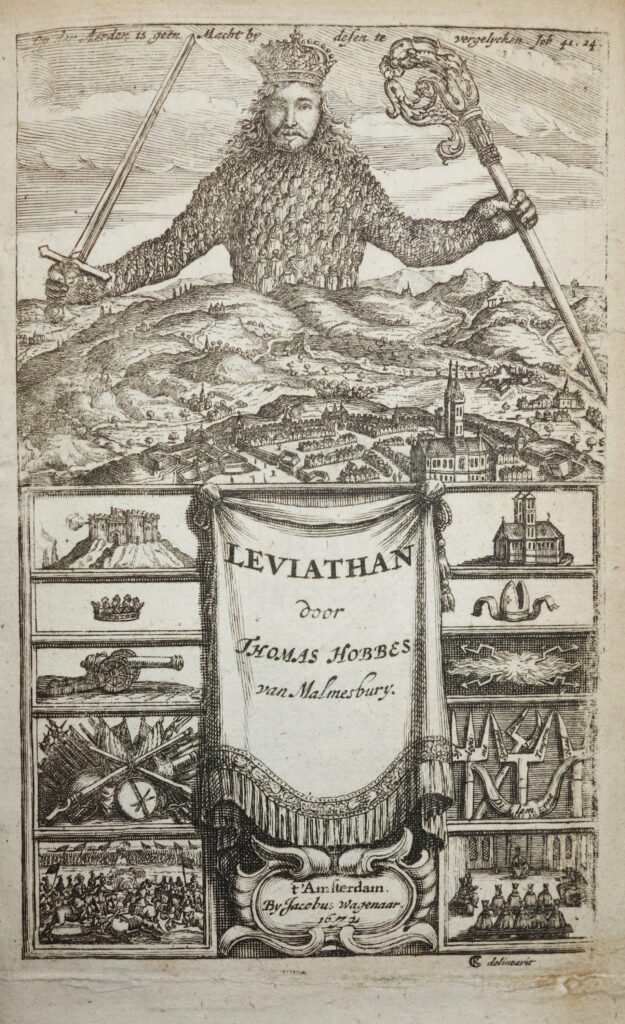

Rare and important first Dutch edition of Leviathan, translated from the 1651 Head edition by Spinoza’s friend Abraham van Berkel (1639-86). ‘As was established by C.W. Schoneveld in 1983, Van Berkel was responsible for the anonymous translation of Thomas Hobbes’s Leviathan that appeared in 1667. In the Preface, signed A.T.A.B., he declared himself an opponent of the House of Orange and an upholder of the republican principles of Johan de Witt. … Because of Van Berkel’s obvious limitations to his knowledge of English, however, there are many mistakes. In the Dutch Leviathan some of these are possibly deliberate mistranslations, reflecting a specifically Dutch and Spinozistic view of the role of the state rather than its more authoritarian Hobbesian counterpart. The most notorious case in point is where Hobbes states that ‘disobedience may lawfully be punished in them, that against the Laws teach even true philosophy’ (p. 474, Tuck edn), which in Van Berkel’s Dutch becomes: ‘Want de Ongehoorsaamheyt mag wettelijck in haar gestraft worden, die tegens de Wetten een valsche Philosophie leeren derven’ (p. 709, Dutch edn), thus substituting ‘false’ for ‘true’ philosophy. Dutch freethinkers obviously did not want the authorities (as had happened in the past) to put strictures on true philosophy, which for them meant (radical) Cartesianism and Spinozism. The Dutch Leviathan was reissued in 1672 but banned by the Court of Holland, in July 1674′ (Dictionary of 17th and 18th-Century Dutch Philosophers, Thoemmes Press, 2003).
